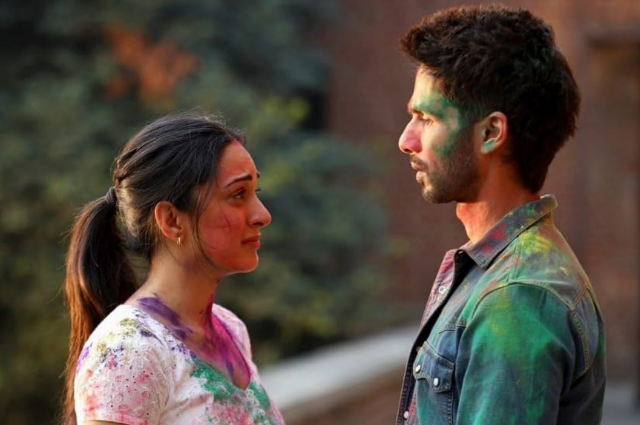The entertainment industry, comprising film, television, music, and other forms of media, has a significant impact on society's beliefs, values, and perceptions. While it often reflects the cultural zeitgeist, it also has the power to shape and influence societal attitudes. One concerning trend within the entertainment industry is the romanticization of male chauvinism, perpetuating harmful stereotypes and reinforcing gender inequality. In this article, we will explore the role of the entertainment industry in romanticizing male chauvinism and discuss its implications for society.
One of the ways in which the entertainment industry romanticizes male chauvinism is through the portrayal of dominant and aggressive male characters as desirable and attractive. In many movies and TV shows, male protagonists exhibit hyper-masculine traits such as dominance, aggression, and a disregard for consent. These characters are often depicted as successful, powerful, and irresistible to women. By glorifying such behavior, the entertainment industry sends a message that toxic masculinity is not only acceptable but also desirable. Violence is glorified in the entertainment sector as a way to establish power. Male characters are typically represented as being physically powerful and able to use force in order to accomplish their objectives. This not only normalizes hostility but also upholds the myth that using violence to dominate others is acceptable. The entertainment industry contributes to the romanticization of male chauvinism by portraying violent behavior as a defining characteristic of desirable male characters.
Particularly among impressionable audiences, the repeated exposure to domineering and aggressive male characters might affect perceptions and promote negative stereotypes. It may contribute to a culture that normalizes and endorses male chauvinism, thereby sustaining detrimental power dynamics and gender inequality. Another troubling aspect of the entertainment industry's role in romanticizing male chauvinism is the objectification of women. Female characters are frequently reduced to mere objects of desire, existing primarily to fulfill the fantasies of male characters or to serve as eye candy for the audience. Women are portrayed in a sexualized manner, existing primarily for the pleasure and fantasies of male characters or the male gaze. Their worth is often measured by their physical appearance and sexual appeal rather than their intelligence, skills, or personal qualities This objectification reinforces the idea that women are subordinate to men and perpetuates harmful gender stereotypes. By presenting women as nothing more than sexual objects, the entertainment industry contributes to the normalization of male chauvinism. The entertainment industry also plays a significant role in normalizing gender stereotypes, further perpetuating male chauvinism. Traditional gender roles are often reinforced, with men portrayed as strong, dominant, and rational, while women are depicted as nurturing, submissive, and emotional. Such stereotypes limit both men and women, reinforcing societal expectations that hinder progress toward gender equality. By repeatedly presenting these gender norms, the entertainment industry perpetuates a cycle of male chauvinism.
The lack of representation and diversity in the entertainment industry also contributes to the romanticization of male chauvinism. Women, particularly women of color, are often underrepresented in significant roles behind the scenes and in front of the camera. This lack of representation leads to a limited range of perspectives and perpetuates the dominance of male-centric narratives. When women's voices are sidelined or silenced, it becomes easier for male chauvinism to thrive within the industry, resulting in the portrayal of regressive gender dynamics in media.
The romanticization of male chauvinism in the entertainment industry has profound implications for society. Media plays a crucial role in shaping societal attitudes and beliefs, as it has the power to influence our perceptions of gender roles, relationships, and social norms. When male chauvinistic behavior is portrayed as desirable or rewarded, it sends a dangerous message that such behavior is not only acceptable but also admirable. This can perpetuate a cycle of violence, misogyny, and gender inequality, as individuals may internalize these attitudes and replicate them in their own lives. To address the role of the entertainment industry in romanticizing male chauvinism, it is crucial to promote diverse and inclusive narratives that challenge traditional gender norms. This involves increasing representation both on-screen and behind the scenes, giving voice to women, people of color, and other marginalized groups. Additionally, media consumers can play an active role in demanding better representation and supporting content that promotes healthy and egalitarian relationships.
The entertainment industry holds immense power to shape societal norms and beliefs, making it crucial to examine its role in the romanticization of male chauvinism. By perpetuating harmful stereotypes, objectifying women, and normalizing gender inequality, the industry contributes to a culture that hinders progress toward gender equality. It is essential that the entertainment sector diversify the way men are portrayed. The industry could encourage healthier and more balanced depictions of masculinity by offering a wider variety of male stereotypes that go against conventional gender standards. This involves emphasizing those who are cooperative, courteous, and compassionate, showing that power does not only depend on dominance and aggression. Recognizing the impact of media representation and working towards more diverse and inclusive narratives can help break the cycle of romanticizing male chauvinism and promote a more equal and inclusive society.

